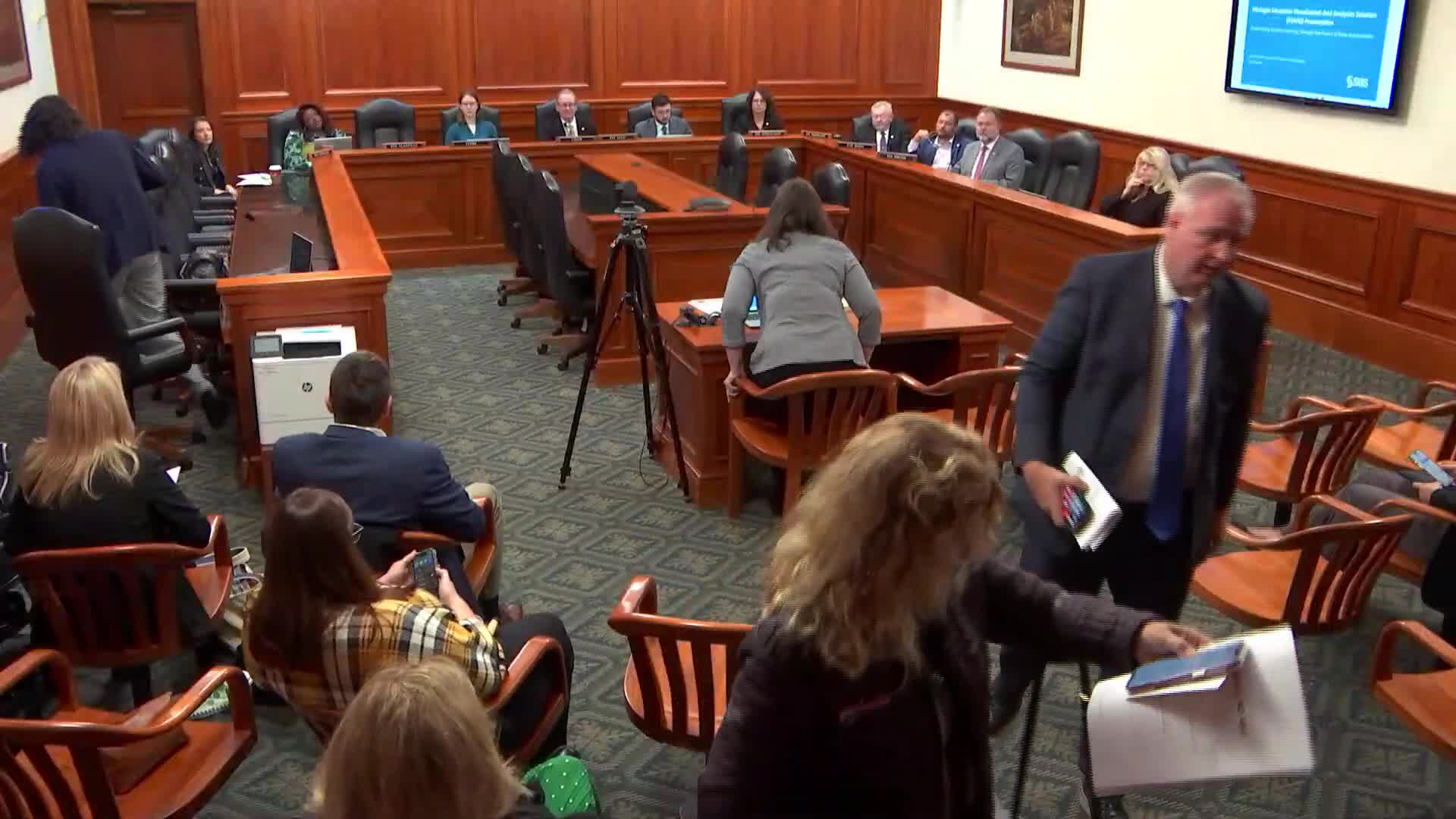SAS warns subcommittee state funding lapse would erase decade-plus of linked education analytics
Get AI-powered insights, summaries, and transcripts
Subscribe
Summary
Katrina Miller of SAS said Michigan’s Education Visualization and Analytics Solution (EVAS) stores a unique longitudinal dataset dating to 2013 and that the vendor’s current contract ends in April; without renewed funding the company will begin erasing data collected under opt‑in arrangements with districts and ISDs.
Katrina Miller, director of educational partnerships for SAS Institute, told the House appropriations subcommittee that the state’s EVAS contract provides a longitudinal analytics tool used by Michigan districts and intermediate school districts and that a lapse in funding would trigger contractually required data erasure beginning in April.
“Right now, all of this information, because of the data destruction language we have in our contract, we will begin the erasure of that information basically in April,” Miller said. She described EVAS as a longitudinal dataset that combines state assessment data, district-submitted benchmark assessments and student–teacher linkages going back to 2013; she said over 90 percent of ISDs have districts that opt to provide data to the tool.
Miller described EVAS as both reflective—allowing districts to evaluate past growth—and forward-looking—projecting student likelihoods for future course success. She said the system is used for local diagnostics, teacher- and school-level insights and program analysis such as examining literacy investments. “We take data from MDE… and that includes teacher linkages and benchmark assessments, and we combine all of that data and add the power of analytics,” Miller said.
Committee members raised questions about uptake and use. A member asked whether districts use EVAS as a teacher-evaluation tool; Miller said some districts do and others do not, and that districts vary in whether they want student-level transparency or fear its use as an accountability “hammer.” The committee also asked what would happen to the information if the contract were not renewed; Miller repeated that erasure begins if funding is not renewed.
Miller said the tool is used for statewide research and to identify “bright spots” where specific interventions outperform expectations. She offered to provide demonstrations and noted that Michigan’s EVAS data is stored under opt-in arrangements with individual entities, not held centrally by the Michigan Department of Education under the current contract.
No funding decision was made at the hearing; Miller said the data erasure schedule is triggered by the existing contract’s end date.
